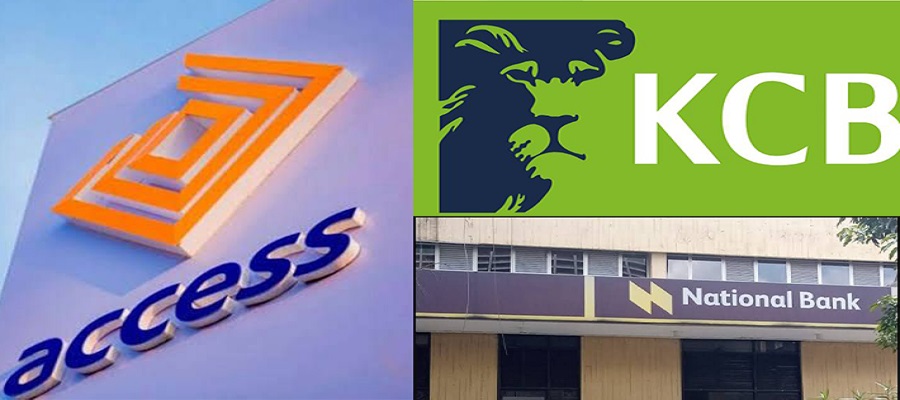E-Financial
How Embedded Payment Is Driving Africa’s Growing Gig Economy

In 2023, the unemployment rate in Africa stood at 7.7 percent out of a total population of over 1.4 billion.

This means that 112 million Africans are either out of jobs, unemployed, or ineligible to work as far as traditional jobs are concerned.
This reality has contributed to the rise of the gig economy in Africa.
A Mastercard Foundation survey revealed that the gig economy in Africa is growing at an average rate of 20 percent per year and is expected to reach 80 million gig workers by 2030.
This rise has been aided by the COVID-19 pandemic, digital advancements in technology, deeper internet penetration and the rise of e-commerce spiking demand for freelancers in various fields like web development, graphic design, content creation and digital marketing.
According to Statista, the gig economy could yield transaction volumes of over USD455 billion this year alone.
Trends such as smartphone usage and increasing internet penetration across Africa have played a huge role in the rise of the gig economy, as well as technological advancements like big data, AI, Cloud and mobile technology.
However, a major factor that is bound to fuel the popularity of the gig economy across Africa in the last few years is the introduction of embedded payments.

Benefits of embedded payments for gig workers
Gig workers expect faster payouts. With embedded finance, employers can manage their cash flow – while generating engagement, retention and revenue.
Embedded finance ensures that gig platforms can provide workers with:
- Instant payouts:
For gig workers, cash flow is a serious concern. Workers want faster, more flexible payments. Instant payouts ensure workers are paid as soon as they complete a job.
- Cash advances:
Getting access to needed funds can be difficult for gig workers, many of whom lack an established credit history.
Gig economy platforms have unique insights into workers’ cash flow and their ability to repay. This makes it relatively easy to offer transparent cash advances with lower risk.

- Financial security:
Workers associate faster payouts with greater financial peace of mind. Platforms that offer embedded finance can provide more financial stability and help their workers feel more confident.
- Payment flexibility:
Gig workers can choose how they want to be paid – whether it is per hour, per project or a fixed price for certain services they provide.
Impact of embedded payments on the future of the gig economy
The landscape of financial technology, or fintech, is undergoing a significant transformation with the rise of embedded finance.
People are leveraging more tech platforms and apps to accept and complete gigs and businesses are leveraging real-time payment technology to issue faster payments directly to workers.
Payment tech is transforming gig work by creating an experience that meets workers’ needs and expedites the work cycle. It has become invaluable in facilitating gig jobs and supporting the scale of the industry.
- Building Gig Worker Loyalty
The gig economy is a highly transactional system. Workers accept a job, complete the job and are paid for the job. Employers must make the work cycle fast and seamless to complete the transaction.
According to a recent survey from PayQuicker and the Ultimate Gig Research Project, 60 percent of the gig workforce take jobs from multiple platforms, so completing a gig shift and receiving earnings seamlessly is critical to attracting workers back. Real-time payments improve the experience and ultimately create gig-worker loyalty.

- Creating management efficiencies
As employers increase their utilization of gig talent, they also need to streamline the payment process and management of their influx of gig workers.
This may seem like a daunting task, but real-time payment technology can enable employers to optimize efficiencies while decreasing management and cost burdens.
- Empowering flexible earning possibilities
More individuals might consider gig work to earn additional income if it was feasible to receive their earnings in the frequency, method and currency they prefer. Real-time payment technology empowers gig workers with access to their earnings on their terms.
This opens the possibilities for even more individuals to take on gig work and benefit from their earning potential.
Conclusion
The gig economy is on a rapid rise across Africa. With millions of people joining in annually, the gig economy is set to overtake the traditional workforce. This means that the expectation for innovative and real-time payment options will rise across industries and businesses patronizing gig workers, with embedded payment systems becoming a necessity.
Hence, understanding the role of embedded payment in driving the gig economy and how you can leverage it for your business is crucial.
This SeerBit whitepaper explores how embedded payments can further grow Africa’s gig economy by facilitating easy payments for gig workers through digital platforms.
Click HERE to download.
E-Financial
CBN Pumps in Additional $150m into Forex Market to Safeguard Naira

Central Bank of Nigeria (CBN) has reportedly injected $150 million into the foreign exchange market at the beginning of the week to keep the naira safe under pressure.

With sustained forex market intervention, a slew of analysts have formed a consensus that the exchange rate would trade range-bound in the second quarter.
Last week, the Apex Bank sold $635 million to authorized dealer banks in FX market amidst efforts to strengthen liquidity levels in the market.
A potential slowdown in US dollar supply could trigger negative exchange rate movement, according to analysts.
Again, the naira faced another round of demand pressure in the official window as offshore investors continued to exit positions in naira assets.
To stem the negative impacts of unusually high demand for US dollars, the CBN intervened with a sale of $150 million at rates between $/₦1,593.20 and $/₦1,623. Throughout the session, the USD/NGN pair moved within a range of $/₦1,593.10 to $/₦1,630, AIICO Capital Limited reported.
Data from the CBN showed that gross external reserves fell to $38 billion in the absence of additional inflows and a slowdown in oil FX receipts.
In the global commodity market, oil prices fell on Monday despite some positive signals, including exemptions for electronics from U.S. tariffs and a sharp rebound in China’s March crude imports.
These factors were overshadowed by ongoing fears that the prolonged U.S.-China trade war could hurt global economic growth and weaken fuel demand. Brent crude dropped 42 cents, or 0.65%, to $64.34 a barrel, while U.S. West Texas Intermediate (WTI) crude slid 53 cents, or 0.9%, to $60.97.
Meanwhile, gold prices declined over 1% after reaching a new record earlier in the day.
Improved risk sentiment following the tariff exemptions on smartphones and computers contributed to the dip. Spot gold fell 1.1% to $3,200.11, while U.S. gold futures declined 0.9% to $3,216.20. #CBN Injects Additional $150m into FX Market to Safe Naira First Holdco Falls below N1 Trillion in Equities Market
E-Financial
Kenyan CBN Okays Access Bank Full Acquisition Of NBK

Access Bank, a subsidiary of Nigeria’s Access Holdings Plc, has received final regulatory approvals to acquire 100 per cent shareholding of the National Bank of Kenya (NBK), marking a significant milestone in the lender’s strategic expansion across East Africa.

The Central Bank of Kenya (CBK) confirmed on Monday that it granted approval for the transaction on April 4, 2025, under Section 13(4) of the Banking Act.
In a coordinated move, Kenya’s Cabinet Secretary for the National Treasury and Economic Planning also gave the green light on April 10, 2025, pursuant to Section 9 of the same Act.
Access Bank is acquiring NBK through a full purchase of shares from KCB Group Plc, which has held complete ownership of the bank since 2019.
As part of the acquisition, selected assets and liabilities of NBK will be transferred to KCB Bank Kenya Limited, a wholly owned subsidiary of KCB Group.
The CBK and the Treasury have both approved this transfer as an integral component of the broader transaction.
According to CBK, the acquisition will be finalized upon the full completion of agreed terms between Access Bank and KCB Group. Once completed, Access Bank will officially own and operate NBK, positioning itself as a stronger competitor within Kenya’s dynamic financial services landscape.
The acquisition of NBK aligns with Access Bank’s long-term strategy to scale operations in East Africa and deepen its presence in Kenya, one of the continent’s most competitive banking markets.
The move is expected to enhance Access Bank’s capacity to deliver innovative digital and financial solutions to a broader customer base in the region.
The CBK welcomed the acquisition, stating that the transaction is consistent with its objective to promote the development of a sound, stable, and inclusive financial sector.
The regulator expressed confidence in Access Bank’s capability to ensure continuity of services at NBK while strengthening financial resilience in the market.
“The acquisition will enable Access Bank to leverage NBK’s infrastructure and customer base, thereby enhancing service delivery and financial inclusion in Kenya,” the CBK noted.
Access Bank’s expansion reflects a broader trend of cross-border banking consolidation in Africa, as regional financial institutions seek to build scale, diversify risk, and foster long-term growth across key markets.
E-Financial
SEC Says CBEX, other Unregistered Digital Platforms are Illegal

Securities Exchange Commission (SEC) has charged all fintechs, cryptocurrency firms and exchanges to register with the commission. This is coming weeks after President Bola Tinubu assented the Investments and Securities Act 2024 into law, making its provisions officially enforceable.

Dr Emomotimi Agama, DG, SEC
“If you are not registered with the SEC, you are illegal,” Dr Emomotimi Agama, director general, SEC, said during a virtual engagement that held yesterday.
“Registration is the hallmark of regulation. If there is no registration, there is a violation. Hence, we all must educate ourselves and clear any doubt in the process of building a strong Fintech ecosystem.”
The desire to fast-track digital asset licensing and registration is slowly becoming a core mandate for Agama in 2025.
This turnaround is quite significant from 2021, when the rise of cryptocurrency was stalled by several bans, hurting the growth of the sector.
However, the SEC boss is determined to avoid sharp practices and safeguard investors from pump and dump schemes, ponzi schemes and volatile meme coins introduced by celebrities.
Last year, the commission warned the general public against meme coins introduced by African singer and songwriter, Davido.
For the digital asset providers seeking licensing who have not yet gotten a response, Agama noted that work has been happening underground.
“We have observed some significant issues which we need to take care of. Some of the new applications need a level 3 due diligence before getting a provisional license. It must have taken longer than necessary. However, what we are trying to do is to make sure that every gap is covered.”

 E-Business2 days ago
E-Business2 days agoNITDA Warns Against Fake Google Play Store

 News2 days ago
News2 days agoNOA Uncovers Fraud by Banks, Universities in Students Loan Scheme

 General News2 days ago
General News2 days agoLagos Commences Integration of NIN with State Single Social Register

 E-Financial2 days ago
E-Financial2 days agoAfrica Loses $88.6Bn Yearly to Corruption- ECOWAS

 E-Financial2 days ago
E-Financial2 days agoNIBSS Heads to Court to Recover N4Bn Lost due to System Glitch

 E-Financial2 days ago
E-Financial2 days agoUBA Redefines Banking with Next-Gen PoS Terminals and Revamped MONI App

 E-Financial2 days ago
E-Financial2 days agoSEC Bans Unregistered Digital Asset Exchanges, Online Forex Platforms

 General News2 days ago
General News2 days agoNigeria Records $6.83Bn Balance of Payments Surplus in 2024 Amid Economic Reforms















